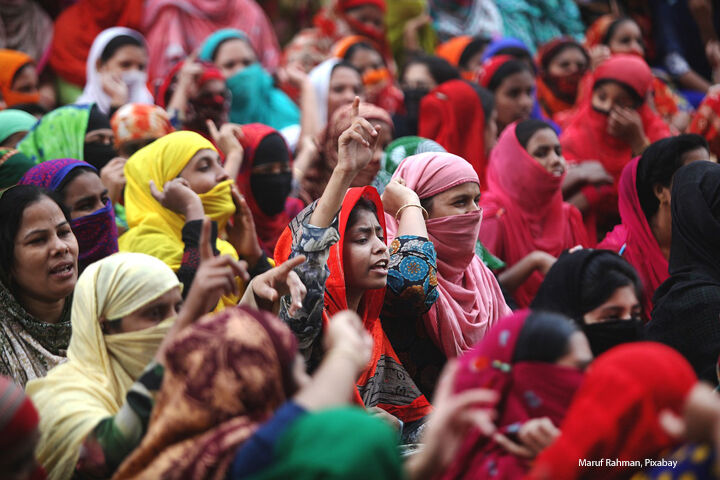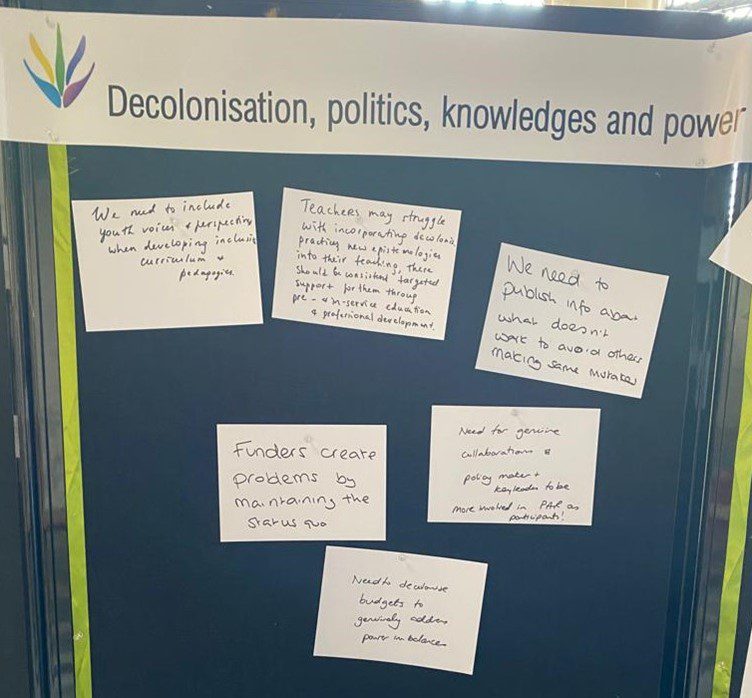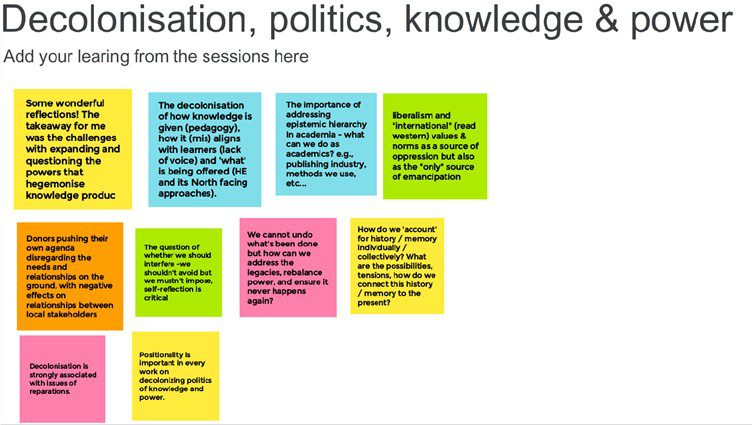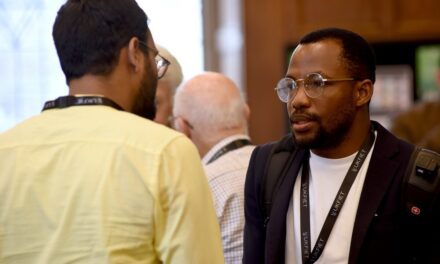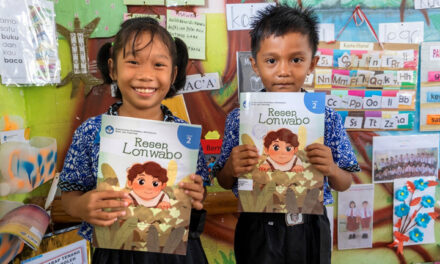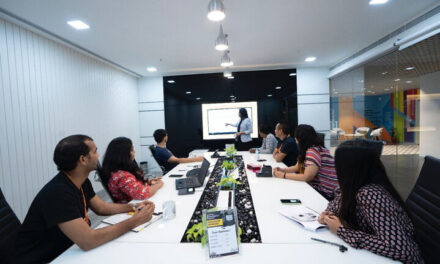This article is by the theme convenors of one of six 2023 UKFIET conference themes, ‘Decolonisation, politics, knowledge and power’: Máiréad Dunne, Professor of Sociology of Education, University of Sussex, and Bukola Oyinloye, Research Associate, University of York. The convenors have gathered some highlights from conference sessions relating to their theme.
The inauguration of the sub-theme at the UKFIET conference brought together an amazing diversity of researchers and practitioners with multiple concerns and interests in the ‘hot topics’ of decolonisation, knowledge, power and politics. Both early career and more experienced participants engaged as presenters or audience members during papers, quick fire contributions, creative sessions and symposia. There was a definite ‘buzz’ as the long obscured implications of decolonisation were acknowledged and enthusiastically discussed. These discussions continued long after sessions had ended.
The sub-theme incorporated theoretical, methodological and empirical papers, accounts of innovative practice and future imaginaries for education and sustainability across the globe. The histories of global relations around ‘education’ in different places, spaces and ecologies in the majority and minority worlds were interrogated and critiqued. The scope of the decolonisation sub-theme was extensive with messages of the energising possibilities and hopes of transformation accompanied by concerns about crisis, conflict, protest and resistance.
The wide range of contributions spanned local, indigenous and curriculum knowledge as well as critical explorations about the architectures and politics of aid and development. There were also thought-provoking reflections on the work of theories, methods and analyses in the production of knowledges and racialised subjects. In some sessions, these were interrogated through the exclusionary ways structures (for example, patriarchy, racism, etc.) function to reproduce coloniality and power.
Below are some participants’ reflections, from both the online and onsite conference days:
- [Need to interrogate] The decolonisation of how knowledge is given (pedagogy), how it (mis)aligns with learners (lack of voice) and ‘what’ is being offered (HE and its North-facing approaches)
- Liberalism and “international” (read Western) values and norms as a source of oppression but also as the “only” source of emancipation
- Positionality is important in every work on decolonising politics of knowledge and power
- Need for genuine collaboration; policymakers and key leaders to be more involved in participatory action research (PAR) as participants!
The UKFIET conference provided us with a fantastic opportunity to highlight the importance to the field of decolonisation and its intricate web of concerns. It is an important turning point in the world of education and development highlighting fundamental issues that can no longer be ignored. For us as sub-theme convenors, it was marvellous to see the diversity of contributions and the enthusiastic responses of conference participants that included the Early Career Networking Lunch, the Rhodes walk and talk and of course the D-I-S-C-O! We want to thank everyone from the hard-working organisers to the energetic and committed participants – keep up the great work.
A luta continua!

